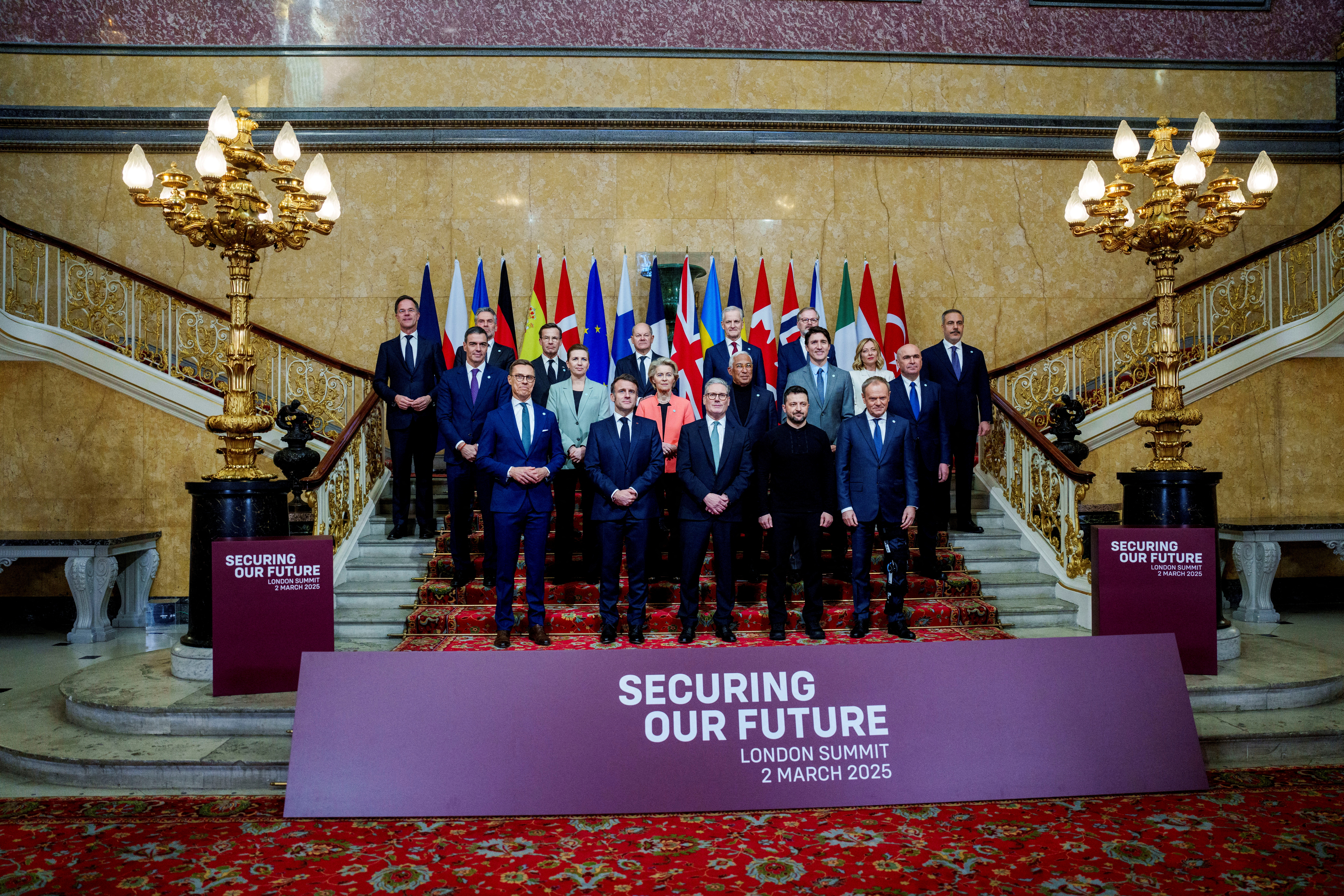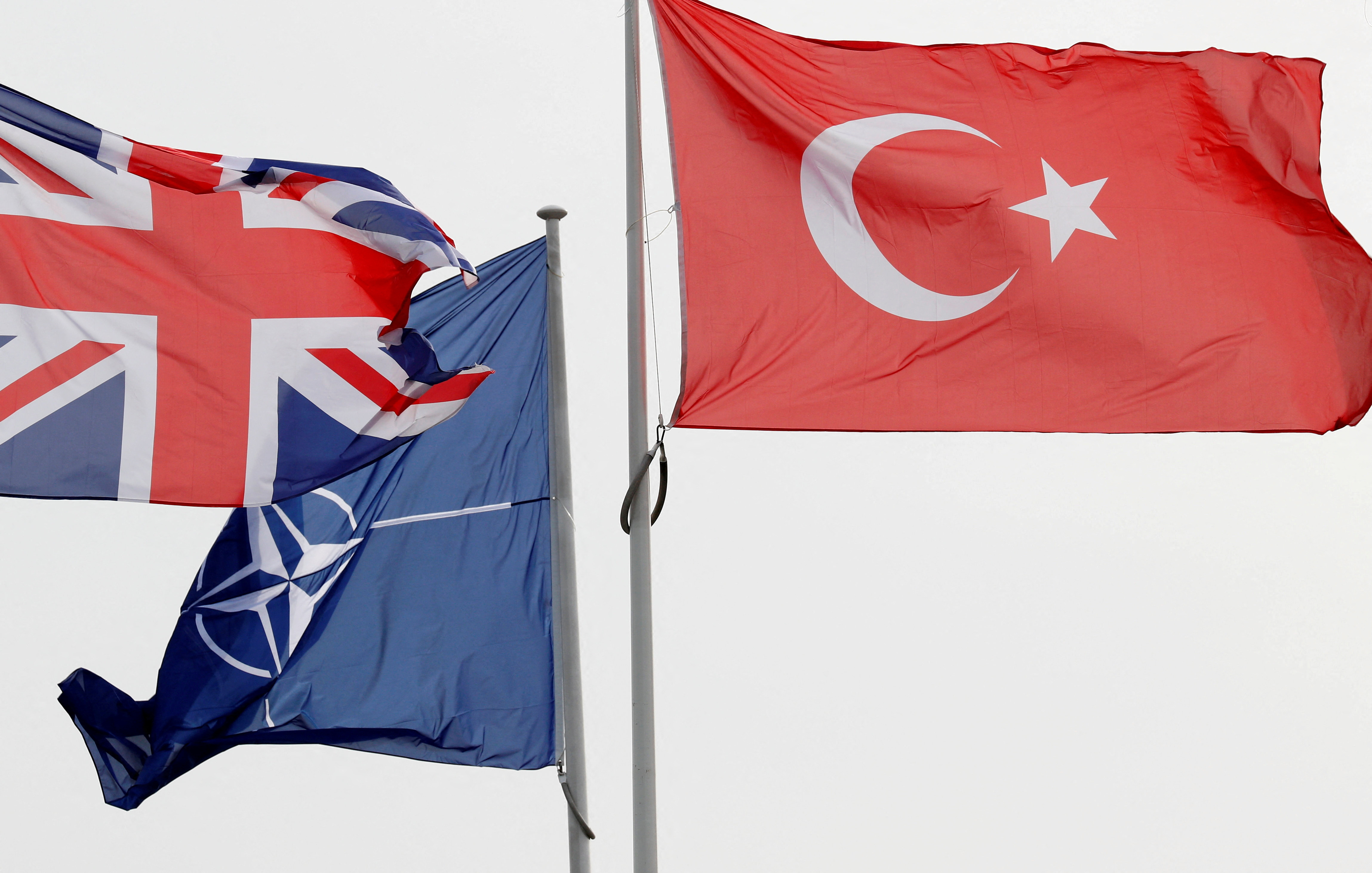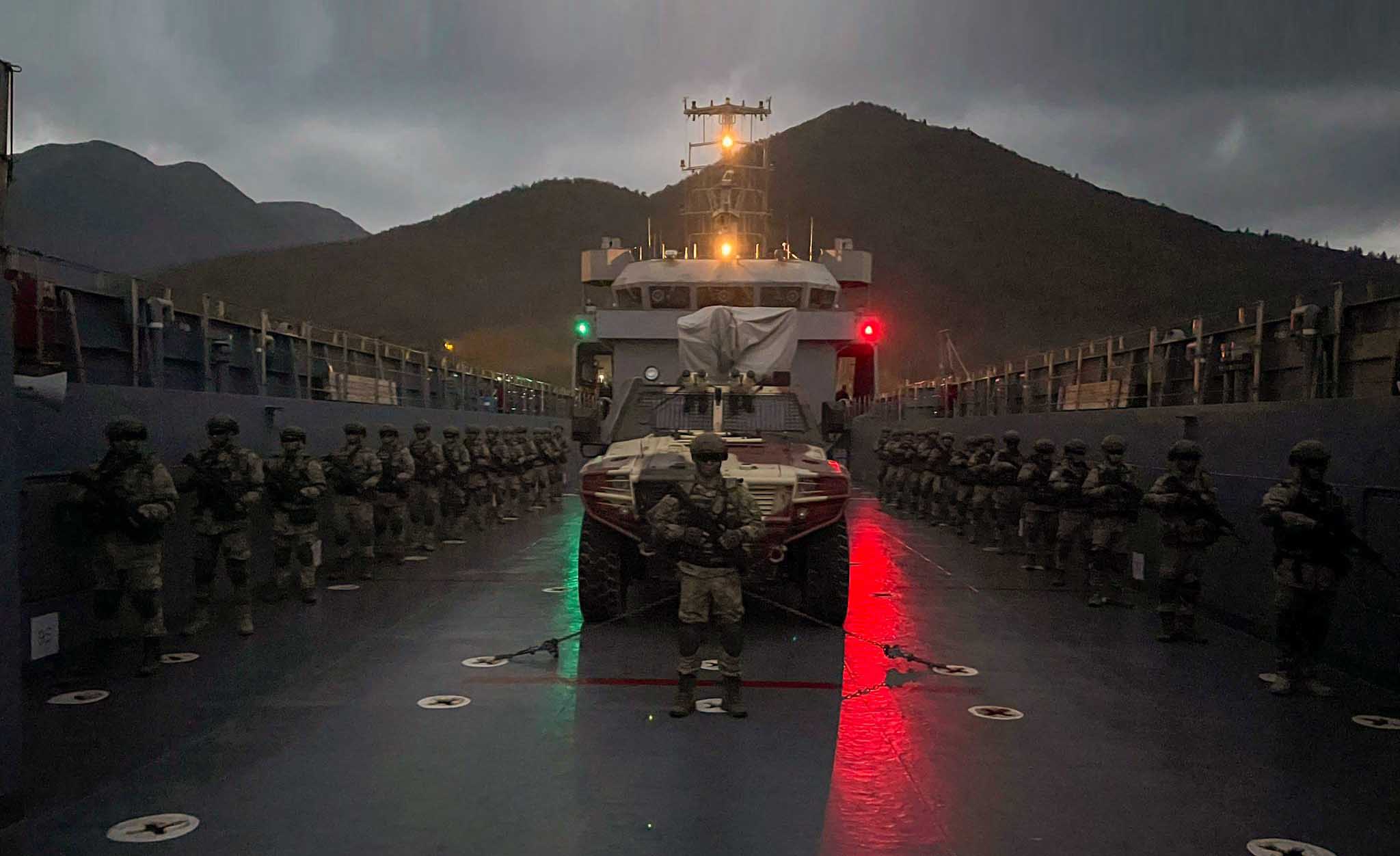‘There’s an intense debate going on in European circles about including Turkey in security’
Talk of Cyprus joining Nato or an affiliated organisation has fizzled out in recent weeks – no surprise there, as the future of Nato itself seems to hang in the balance. Now, with many saying that Europe has to fend for its own security, given the shift in US policy, Cyprus’ longtime adversary Turkey could play a part in the continent’s new security architecture. The situation has turned a whole lot more complex.
As European leaders scramble to get to grips with the shifting geopolitical lay of the land, it appears this has given Turkey an ‘in’. The country has European Nato’s largest land force, with close to 400,000 ground troops. It has over 2,000 main battle tanks, close to half those in European Nato, while its naval forces have control and leverage over Black Sea shipping lanes.
When on March 2 Turkish Foreign Minister Hakan Fidan was invited to a security summit on Ukraine at Lancaster House in London, it signalled that entrenched European suspicion of Turkey was put aside.
And only days ago, the European Parliament voted through the ‘white paper’ on European rearmament, potentially including under its umbrella ‘partner countries’ like Turkey. The white paper will be put before the European Council on March 20.
So how does it all come together? And where does it leave Cyprus which is going to Geneva on Monday to try and restart the Cyprus talks?
James Ker-Lindsay, visiting professor of International Relations at the University of Kent, takes it from the top.
“We’re living in a time of incredible change, no doubt about it,” he tells the Cyprus Mail.
“Last year there were fears that [US President Donald] Trump might pull out of Nato…and now that looks like it’s coming true. That has generated a great deal of concern that the transatlantic link could be broken, as well as worries over Ukraine.”
The analyst says that the “danger with Trump” – given his rhetoric about Greenland, Mexico, Panama and Canada, and his stance toward Russia – risks having repercussions on the international system.
“It could set the precedent that it’s OK to grab another country’s land – meaning Russia in Ukraine. If Trump legitimises Russia’s capture of Ukraine, that could upend the international system.”
Asked whether this line of thinking might be taking it too far, Ker-Lindsay insists: “We mustn’t think of Ukraine as a ‘normal’ war – rather, it’s systemic. It could mean we return to 19th century-style power politics of ‘might is right’.”
And this, he goes on, is where Turkey comes into the debate.
For several years now, Turkey has been seen as an unreliable Nato ally. But now, says Ker-Lindsay, “Turkey is getting alarmed with the shift in US policy. Turkey’s biggest fear is Russia. Ankara sees Washington throwing in its lot with Russia.”
Given all this, the analyst thinks there are signs that Turkey wants to take part in European security.
There are two main options for the Europeans. First, Nato minus the United States, where you get the ‘Coalition of the Willling’. Here, it would be important to get Turkey on board.
But if it’s the second option – the EU per se taking the lead in European security structures – that would pose a problem because of Turkey’s occupation of Cyprus.
“European countries may come up with a formula that says we understand your concerns over Cyprus. In an ideal world, it could give a push for a Cyprus settlement, an opportunity.
“But more realistically, it would probably be a case of Nicosia and Ankara agreeing to disagree – Cyprus not standing in the way of Turkey’s defence cooperation with the EU, and at the same time Turkey not trying to exclude Cyprus from European defence decision-making.”
This wouldn’t mean direct contact between Nicosia and Ankara – but simply that the one won’t obstruct the other.

“It’s a very delicate situation, very fluid at the moment. Certainly there’s an intense debate going on in European circles about including Turkey in security. But there’s also an understanding that if you push Turkey away, it’s more likely that it would turn troublemaker.”
As for Cyprus, it has significantly shifted its foreign policy toward the West, especially in the last three years during the Ukraine conflict.
And it’s true that the Cyprus dispute has complicated relations within Nato. Perhaps now is an opportunity to push for a settlement on Cyprus.
However, Ker-Lindsay does point out that the upcoming Cyprus talks in Geneva are only a coincidence at this point.
But more plausibly, Cyprus and Turkey will find a modus vivendi in terms of European security.
Zooming back out, what happens if the United States pulls the plug on European security? If, say, a ‘hot incident’ occurs in Europe, and America does not engage?
“For years the United States has outwardly complained about Europe not spending enough. And whereas US leaders did complain, secretly this state of affairs satisfied them – as they took charge of European security, reducing Europe effectively to their protectorate. There’s definitely truth to this, that Europe became a sort of US protectorate,” Ker-Lindsay says.
“But Trump doesn’t understand this. And the people around him giving him advice haven’t either, as they think in an insular war – they don’t understand that it’s in America’s interest to control European security, not to mention the arms sales.”
We asked the expert whether the Europeans might be jumping the gun, given that there are still many unknowns.
“Realistically, you don’t want to wait until the United States does pull the plug – you have to start now.”
An analysis piece in English-language Kathimerini on March 10 suggested Nicosia is wary of the changing international environment, but that diplomats remain “cautiously optimistic”. For one thing, there is the Strategic Dialogue Cyprus and the United States, established under Trump’s previous administration. And the island’s strong ties with Israel, a key US ally, could work in its favour.
“Yet, complacency is risky,” Kathimerini opined. “Cyprus has placed significant diplomatic weight on alliances with the United States and Israel – two nations that now openly challenge international norms. In response, Cypriot diplomats are adopting a strategy of low visibility, aiming to avoid provoking Trump’s administration or interfering with its economic interests.”
Another major concern for Cyprus is Turkey’s rising influence in the region: “As Trump openly praises Erdogan and Turkey plays a pivotal role in conflicts such as Syria and Ukraine, Cyprus risks being sidelined. The recent Syria summit hosted by France further demonstrated this reality – despite its regional importance, Cyprus was not invited, while Turkey took centre stage.”

An article published by the Center for European Policy Analysis (Cepa) also on March 10 sounded enthusiastic about the prospects of drawing Turkey into European security arrangements.
Titled ‘Turkey Has Answers for a Vulnerable Europe’ the article said Turkey “has a huge and efficient manufacturing sector with real strengths in defence production. It has the ability to produce tanks, infantry fighting vehicles and munitions – including 155mm artillery shells – at scale.”
What would Turkey seek in return? According to Cepa, Ankara “yearns for cooperation and particularly technology exchange, which could work well for both parties. This would bring a common good in terms of enhanced security for the whole continent.”
Cepa is a think tank based in Brussels, Belgium. It has a clear transatlantic bent. Its funding comes from individuals, corporations and governments. Its website lists its supporters for fiscal year 2025; they include Lockheed Martin, American Rheinmetall Defence, and the Russia Strategic Initiative, US European Command – a US Department of Defence organisation.
The Cyprus Mail reached out to Larry Johnson, a former intelligence analyst with the CIA. He had a sharply different take on the current state of play.
“As far as Turkey ‘saving’ Europe, I think it’s a pipe dream,” Johnson said in an email.
“Europe is not going to let Turkey into the inner circle after years of blocking Turkey from joining the EU. Then there is Turkey’s own problem with Syria. It is fully committed there and does not have the force capable of trying to keep peace in Syria and then undertake a mission to save Europe.”
As for the Europeans, the ex-CIA analyst doesn’t mince his words:
“The Europeans are writing cheques with their mouths that they cannot cash. Europe is an empty shell. I liken them to a toothless little dog. All bark, no bite.”






Click here to change your cookie preferences